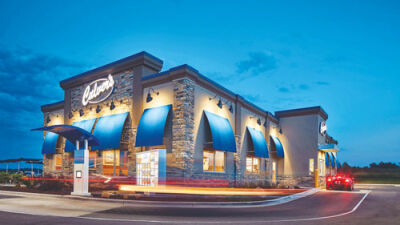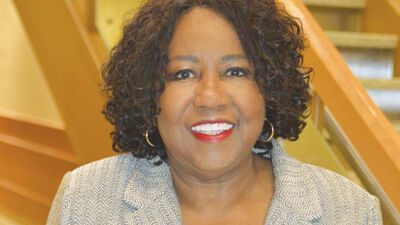FARMINGTON — Voters within the Farmington Public Schools district will be asked to reinstate the district’s non-homestead millage this November in order for it to receive its full per-pupil annual allowance.
Voters will decide on a 1.6152 mill tax on all non-homestead properties — the millage will not affect voters’ primary residences. If approved, it would provide a 1-mill cushion to prevent the district from having to bring the issue back to the voting population annually, district officials said. However, the district can legally only levy 18 mills.
“What’s important to understand about a restoration is that, for many years, our businesses have been paying the 18 mills, and this is simply asking to restore the 0.6152 mills back to what they originally were paying. So there’s no increase on the businesses, and there is no increase on the homeowners,” said Christopher Delgado, district superintendent.
In order to maintain its full per-pupil allowance, the district is required to levy 18 mills on all non-homestead properties, which include commercial, business, rental properties, vacant land and second-home properties. This would equate to $18 for every $1,000 in taxable property.
“The state assumes that we collect 18 mills on all our non-homestead properties, and when we aren’t able to, we lose that funding,” said Jennifer Kaminski, assistant superintendent of business services. “They don’t make up that difference.”
However, as a result of the 1978 Headlee Amendment to the Michigan Constitution, and a recent increase in property tax values that is greater than the cost-of-living index increase, the millage currently in place has been reduced to 17.3846 for the 2022-2023 school year. The district had a similar situation in 2017 and was able to get voters to restore the millage, along with an extra cushion that covered the steady decrease in the millage as a result of the Headlee Amendment for the last five years.
“That additional mill just allowed us to kind of weather the storm over these years and still be able to collect the 18,” said Kaminski.
Delgado stressed that the issues with the millage as a result of fluctuating property values is not just a Farmington problem, but rather a state problem. He said that many school districts are subject to the rollback and are going for similar millages.
The district has just under 9,000 students enrolled this year. The reduction in revenue amounts to $103 per student. That money helps the district to fund its day-to-day operations, which include staffing.
“$878,000 is a lot for us to absorb. What we would have to do if this doesn’t pass is really go to the drawing board to see what might be the potential either cuts or opportunities that we could kind of absorb that money,” Delgado said. “What we’re real concerned about is the multi-year compound of that, if this doesn’t get passed.”
He said that the district calculates the loss without the restoration to be as high as $10 million over the next four years. He said that would cause major program cuts and lead to teacher layoffs and forced cutbacks on other programs, such as athletics, transportation and music.
“There could be a significant ripple effect starting next year into subsequent years if it doesn’t pass,” said Delgado.
“We all understand that the quality and stability of your public schools really is the heart of a community,” he said. “When you have strong public schools, you have attractive real estate options, and it’s an attractive place for people to live to grow a family and for business to want to come and open businesses. … We’re not asking for more than legally what we can levy. We’re asking for the businesses to continue that level of support that they have for so many years in this school district.”
 Publication select ▼
Publication select ▼



























